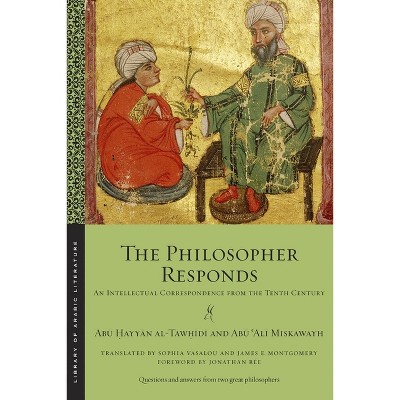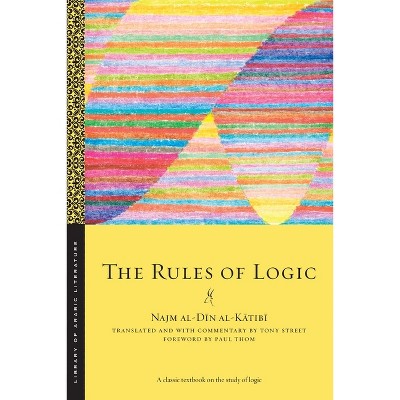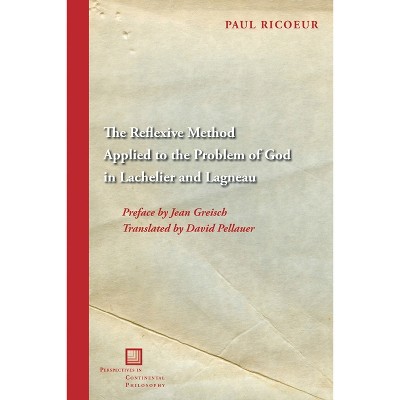Sponsored

Poeticality - by Jeffrey Sacks
Pre-order
Sponsored
About this item
Highlights
- "Will you not memorize a little poetry to halt the slaughter?
- About the Author: Jeffrey Sacks is Professor of Arabic and Comparative Literature at the University of California, Riverside.
- 336 Pages
- Literary Criticism, Middle Eastern
Description
About the Book
Showing how poetry and art articulate forms of life beyond settler colonialism.Book Synopsis
"Will you not memorize a little poetry to halt the slaughter?" the Palestinian poet Mahmoud Darwish wrote. Darwish's poetic statement points to world-evacuating and genocidal violences--in a triangulation of Palestine, Iraq, and the American settler state--as his language recalls us to a sonority in utterance and acts of refusal in collective form. Through readings of Arabic and Arab poetry, art, translation, and philosophy, Jeffrey Sacks illumines an indetermined, non-accumulative, non-propertied manner of lingual doing--across post-Ottoman topographies and states, and in excess of any single language--where language is a practice in sociality, the social is indistinct from the ontological, and being is a poetic mode--what this book calls "poeticality."
Poeticality studies the Lebanese-American poet and painter Etel Adnan, the Iraqi poet and translator Khālid al-Maʿālī, philosophers in the Arabic peripatetic tradition, and writings of Karl Marx, Paul Celan, Walter Benjamin, and others, to demonstrate a sense of form wholly other than what is advanced in self-determined social existence, linguistic self-understanding, and philosophical self-representation--a manner of address and a social pose, which Sacks summarizes under the heading "settler life." Settler life--a form of life, a practice of reading, and an asymmetric distribution of social destruction--asserts itself as a generalized and regulating attack upon Black and Indigenous life, and upon all forms of nonwhite, non-Christian, non-heteronormative existence. "Everything is in the language we use," the Oglala Lakota poet Layli Long Soldier has written. This book--learning from Long Soldier's observation and with Darwish's sense of the poetic--affirms the demand for Indigenous sovereignty, in Palestine, in Turtle Island, and elsewhere, a demand which, through the collective acts occasioned in it, decomposes and deposes all sovereign forms and all stately legalities, in refusal of settler life.From the Back Cover
"Jeffrey Sacks writes with such fluent intensity, with an erudition so broad and so focused, that he reveals a mode of reading that seizes the time and is unheld by it, that defends the land and is unbound to it, thereby discerning and advancing a specific poetics of Palestinian insurgency that is and bears a planetary gift that genocidal settlement can't steal--the great goodness of life. There is no right to refuse such beautiful and terrible refusal."--Fred Moten, New York University
"It is not only that Sacks shows settler life to exceed the settler's life in the colony. It is not only that he tracks settler life's linguistic and philosophical practices, sustained by social and juridical forms, and pressed-out at the world in the manner of a counterinsurgent attack. By attuning the reader to an 'anontological form' emerging from Arab and Arabic ways of doing language, possessing neither property nor self, Sacks also gathers poetic withdrawals from settler life. The result is an opening--a struggle, a reanimated tradition--that refuses division and mastery."--Samera Esmeir, University of California, Berkeley "Will you not memorize a little poetry to halt the slaughter?" the Palestinian poet Mahmoud Darwish wrote. Darwish's poetic statement points to world-evacuating and genocidal violences--in a triangulation of Palestine, Iraq, and the American settler state--as his language recalls us to a sonority in utterance and acts of refusal in collective form. Through readings of Arabic and Arab poetry, art, translation, and philosophy, Jeffrey Sacks illumines an indetermined, non-accumulative, non-propertied manner of lingual doing, where language is a practice in sociality, the social is indistinct from the ontological, and being is a poetic mode--what this book calls "poeticality." Settler life--a form of life, a practice of reading, and an asymmetric distribution of social destruction--asserts itself as a generalized and regulating attack upon Black and Indigenous life. In face of this self-assertion, Poeticality affirms the demand for Indigenous sovereignty, in Palestine, in Turtle Island, and elsewhere, a demand which, through the collective acts occasioned in it, decomposes and deposes all sovereign forms and all stately legalities, in refusal of settler life. Jeffrey Sacks is Professor of Arabic and Comparative Literature at the University of California, Riverside.Review Quotes
"It is not only that Sacks shows settler life to exceed the settler's life in the colony. It is not only that he tracks settler life's linguistic and philosophical practices, sustained by social and juridical forms, and pressed-out at the world in the manner of a counterinsurgent attack. By attuning the reader to an 'anontological form' emerging from Arab and Arabic ways of doing language, possessing neither property nor self, Sacks also gathers poetic withdrawals from settler life. The result is an opening--a struggle, a reanimated tradition--that refuses division and mastery."---Samera Esmeir, University of California, Berkeley
"Jeffrey Sacks writes with such fluent intensity, with an erudition so broad and so focused, that he reveals a mode of reading that seizes the time and is unheld by it, that defends the land and is unbound to it, thereby discerning and advancing a specific poetics of Palestinian insurgency that is and bears a planetary gift that genocidal settlement can't steal--the great goodness of life. There is no right to refuse such beautiful and terrible refusal."---Fred Moten, New York University
About the Author
Jeffrey Sacks is Professor of Arabic and Comparative Literature at the University of California, Riverside. He is the author of Iterations of Loss: Mutilation and Aesthetic Form, al-Shidyaq to Darwish (Fordham, 2015), which won the Harry Levin Prize First Book Prize from the ACLA, and translator of Mahmoud Darwish's Why Did You leave the Horse Alone? (Archipelago, 2006).Shipping details
Return details
Trending Book Pre-Orders

















